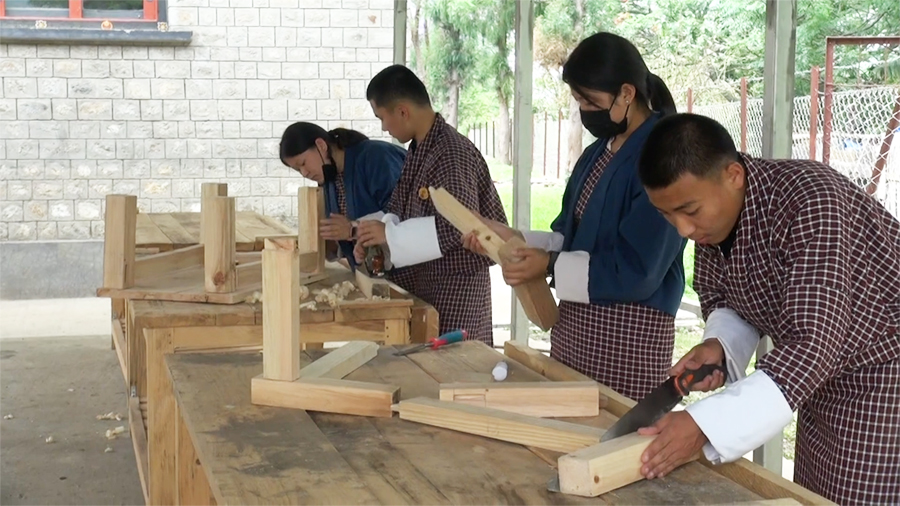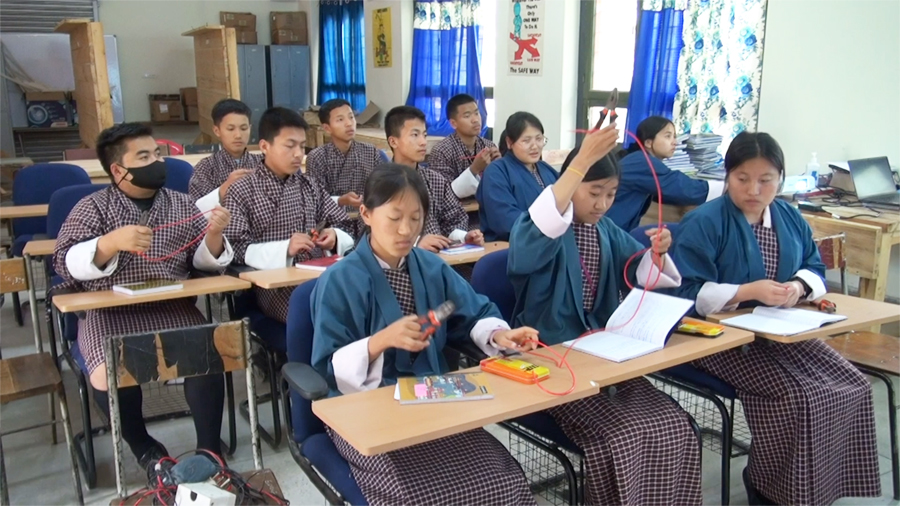
The USD 15 M Asian Development Bank, ADB funded Skills Training and Education Pathways Upgradation or STEP-UP project will come to a close this October. However, the Education and Skills Development Ministry said Technical and Vocational Education and Training, TVET courses will be continued in the selected schools. Under the project, nine TVET courses are being offered in seven schools on a pilot basis.

The ministry started the pilot phase in 2019. The ADB-funded project is implemented in an effort to prepare high school students for the country’s workforce. Under the project, subjects such as furniture making, auto mechanics, electrical, masonry, plumbing, painting, computer and hardware repair, tailoring and welding among others are offered.
The implementation of the project picked up after it was initially disrupted by the pandemic.
Classes nine to twelve students in the pilot schools who are interested in TVET have the option to take the courses. The TVET courses are being offered as an alternative to the economics subject.
“I think that we can enhance our skills as the course is different from other subjects and we have the interest to learn. The reason I took the course is because of my interest. Secondly, it helps to score higher aggregate marks compared to economics. And I have heard that we get jobs in the future too,” said Kinley Pelden, a student of Babesa HSS in Thimphu.
“I took the furniture course as it helps us develop skills. My father was a carpenter who used to design various furniture and I always thought I could do it as well. It has evoked interest in me and I took the course to enhance my skills. If we are skilled enough to make the furniture ourselves, we can be self-employed,” said Kezang Dema, a student of Rangjung Central School in Trashigang.
“I made up my mind to take the electrical course. I think it will help me in fulfilling my ambition as I want to become an electrical engineer. So, I thought it would help me in getting the basics of it. I think I will get employed, if not, I will open a hardware business,” said Cheyang Dendup, another student of Rangjung Central School.
Meanwhile, the teachers and instructors of the pilot schools said that there are a few challenges during the practical exams due to the shortage of infrastructure.
They have suggested sending students to technical training institutes for some months to improve their learning experience.
“This year, we have around 35 students taking the course. We have 11 students from class nine and 24 students from class ten. The programme has been going in accordance with our expectation because the instructors have been trained and were picked from Thromde schools. I think the journey so far has been good, however, a few challenges we have faced in the past are during the practical exam. We have been collaborating with TTIs to resolve the issue,” said Tashi Tshering, Vice Principal of Babesa HSS.
“The students will be studying the course for almost four years from grade nine to twelve, where they know the basics. They can work for two months in TTI, learning how to operate the machines and then go for a month-long On Job Training after which they can take up practical and theory exams. Then, NC2 certificate can be issued,” said Bim Bdr Kharki, instructor of Rangjung Central School.
Officials from the Ministry of Education and Skills Development said such courses provide opportunities, even for the students who discontinue their studies after high school.
Currently, more than 500 students are pursuing the courses. The first batch of 60 students graduated last year among which 40 of them joined TTIs to continue their courses.
Sonam Yuden and Sonam Dargay
Edited by Tshering Zam








